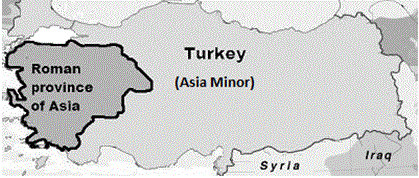|
 Resources For When You Are…Consult a checklist of vital church activities while coaching new shepherds. Track a church’s progress by charting its practice of vital ministries: Checklist, ministries required by New Testament Decide how to train new leaders. Examine crucial differences between academic teaching and mentored training, where both fit, and the effective ratio between the two, in a particular field: Compare classroom, mentored extension training Train leaders that churches or cells need urgently. Shepherd’s Storybook prepares new pastors quickly. This short novel is a pastoral training course covering essentials, posing study questions. Learn quickly to evangelize, disciple, form a church, initiate vital ministries and birth daughter churches. Use its appendix to find Bible stories that teach vital doctrines and duties. Shepherd’s Storybook, complete pastoral training jit 4a 85 Shepherd’s Storybook, overview, ½ page Clarify leaders’ duties. Let new leaders do precisely what God tells them to do: Name neophytes as leaders: Mobilizing new leaders ? How soon Initiate serious, leadership training. Deal with questions and objections that commonly arise: Who should train new church leaders Who should be trained to lead churches or cells Let ladies lead. Leaders in expanding movements, as in some traditional churches draw their sharpest swords to face off on this issue. This document has valuable biblical guidelines for women to serve effectively. It also objectively probes the Greek text to find precisely what Paul meant by his controversial words to Timothy and the Corinthians: jit 4a 12 Women mentoring women, women in leadership, 3 pages Get an accurate compass bearing. Help leaders clarify their vision and set long-range objectives. Point new leaders in the right direction Decide whether to coach new leaders: Fifteen crucial reasons for face-to-face coaching See coaches in God’s Word: Teach about teaching. This document provides easy-to-follow guidelines to train new leaders in a way that keeps churches or cells multiplying. A must-read. Train new leaders as Jesus and His apostles did Train trainers: Training trainers of church planters and shepherds Common Traps To AvoidBlindly follow educational tradition. Some church planters assume that new pastors need academic training. Although there is a place for academic, theological education, but do not cripple new churches by sending their shepherds afar to receive it. Fret that coaching would take too much time. Throughout history and around the world today, evidence shows that coaching can save time by multiplying workers who share the work load. Coach only one-on-one. Do not define coaching or discipling as one on one. Jesus rarely coached only one, and Paul normally traveled with a small band. Train only during work hours. Normally only the unemployed can attend weekday training sessions. In pioneer fields, many who attend workshops are the jobless, the single and the young; these become immature pastors who need financial support because they lack regular income. Thus, their movement cannot grow beyond the limits of available funds, and their churches have inexperienced leaders who fail to meet biblical requirements of shepherding elders. Do not hobble your work in this way. Excessively segregate children by age. Children in all cultures crave attention from older children, and do almost anything to please them. Children also enjoy being with peers, but not all the time. Wise mentors help children win younger children to Christ, lead them and disciple them. Make training too heavy. Nearly all pastoral training programs in pioneer fields start at a level far too high, with too much heavy reading. You may need to gear down to an effective level. Heavier studies can come later, when leaders and churches are ready to embrace them. |



Speak Your Mind